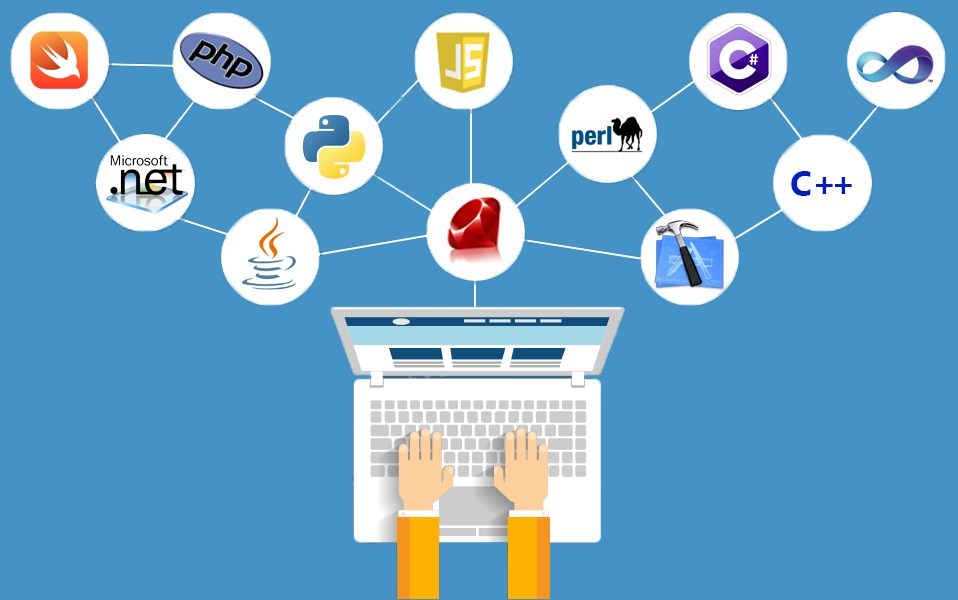Technology changes every 2-3 years if not sooner. The good news is that today we have a pretty fair idea of what the next 2-3 decades hold for us in terms of the broad areas that will lead the change. So if you plan to be a part of this industry for the next 2-3 decades, you need to understand what these areas are, and how to prepare yourself for it.
But before we begin to get into tomorrow, let’s talk about today. As a person aspiring to return to work after a career break, to get back in the groove and make up for any lost skills over your break, the most important thing you can do is to just start working. Whether it be a passion project, an assignment for someone you know, or a part-time or full-time role with a company that likes what you bring to the table, just take it up. This on-the-job training and skilling will be more critical than any other thing you could do.
Alongside keep working on your skilling journey to learn new updated skills and get better everyday - it will come in use to get better jobs, and in technology given the rate of the change, simply to keep pace.
5 things all techies should know about the future of the Tech industry
1. We are at the brink of the 4th industrial revolution
We are at the brink of the 4th industrial revolution, defined as the blurring of boundaries between the physical, digital and biological spheres. For example, a smart watch today can monitor your heart-rate, your blood pressure and your sleeping pattern. A 3D printer can print clothes, cars and even weapons. You can control the light in your living room while sitting inside your bedroom, and the day is not far when your refrigerator will instruct your AI assistant to place orders for the kitchen provisions that you will run out of soon - all without you having to do anything. All of these phenomena together are employing several new-age technologies from Artificial Intelligence to Robotic Process Automation to Internet of Things. But at the end of the day, it is the people working in these industries, be it the coders, data scientists, architects, engineers, testers, product managers, security analysts, designers, network specialists, etc who are making it possible for you. As these technologies rise, expand and influence all industries and functions, the world will need many more such people.
2. There are jobs galore in the Tech industry both today and tomorrow
In fact,
as per this official IT-ITes skilling website created by the GoI, India alone will need 1.5-2 Mn people will need to upskill themselves in the next 4-5 years. This website also does a great job of highlighting the different spaces that technology professionals will need skilling in, and even goes as far as to list down the job roles that each of these spaces will need. Even sites such as
this talk about the most in-demand skills for the coming years, which include everything from more standard Java, JavaScript, Python and FullStack developers to the more customised Cyber-security engineers, Scrum masters, Cloud engineers and Data scientists. There is something for everyone
3. The industry has not revolutionized overnight, we have been moving towards it since the 50s
As this article explains, there are three broad trends that have led to this explosion of new technologies, for which the seeds were sown from when huge Mainframe computers started to replace human computing. The trends that have led towards this revolution are -
- High computing power: In the 1970s, to store 5MB of data you needed a device that weighed around a tonne and took up 16 square feet of space. Compare that with today when even small USBs the size of a baby’s thumb come with 1-2 GB of storage capacity. And we continue to race on that path to even better faster machines - this means the ability to have more complex, integrated systems like IoT powered by AI/ML, that in time can perhaps manage the complexity that the human brain does
- Better connectivity: From the days of the early humans crossing vast stretches of land on foot, to ships being the primary mode of transportation over long distances, to now - when you don’t need to leave the comfort of your chair in order to speak with someone or buy something, from the other side of the world, we have come a long way in how connected the world today is. This has resulted in better exchange of ideas, leading to higher innovation as well as more dependence on technology as a means of staying connected
- Huge amount of data collection: The above two have led to a universe of applications and devices that humans use for various purposes - from finding directions to monitoring themselves to staying connected, in turn generating a huge amount of data on their lives that has given rise to multiple industries, most notably the one that analyses this data to mine insights
4. For the IT-ITes industry of tomorrow, there are many ways to skill-up today
- Do courses: On online platforms or MOOCs; for example - Udemy, Khan Academy, edX, Coursera that exist in order to help people skill-up in a targeted manner
- Practice: Do personal projects, for example - build an app in an area of personal interest, upload it so you can give a live app for prospective employers to see. Or volunteer for projects which allow you to practice and sharpen existing skills or learn new skills - such as AI, Blockchain etc
- Interact: In very specialised communities to build your knowledge and skills; for example - join the open source developers community where you can create and update your code repository, participate in open discussions, get help from the forums and read up on the latest developments
- Read: In your specialised area; ensure you read a couple of books, follow bloggers, industry publications, etc that will keep you updated. You can use RSS feeds to get alerted for any press releases from vendors or blogs that specialise in new product release updates
- Attend: Tech conferences, trade shows, small informal gatherings, webinars from big industry players. Keep yourself in the loop
5. Once a techie always a techie. JUST START WORKING
And like we said at the beginning, don’t wait till your skilling is complete in order to start working. Skilling is a continuous process that especially for the technology function will be always ON. In the mean-time, get hands-on experience by doing some basic brush-up on your existing skills and applying for jobs. They could be part-time jobs to begin with, to get you into the groove and back into the game
Here we are and now you know your 5 things that all Techies should know. We hope you found it useful, and that it propelled you to take your first step towards returning to work.
**
We at FlexiBees have placed such talented career returners like you in technology and associated jobs. Whether it be as Android or iOS coders, full-stack, front-end or back-end developers, testers, DevsOps people, or Big Data scientists, we are committed to creating meaningful options for you. Go to https://jobseeker.flexibees.com/ and register with us, so we can reach out to you when we get any requirements that match your skills. 

